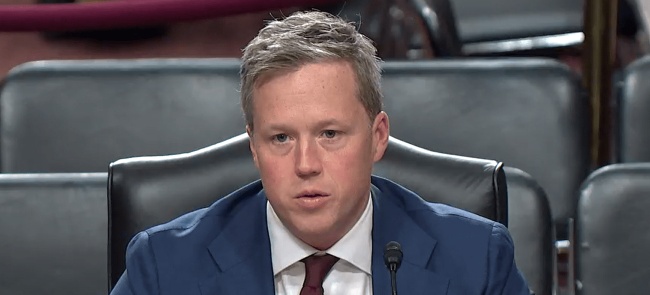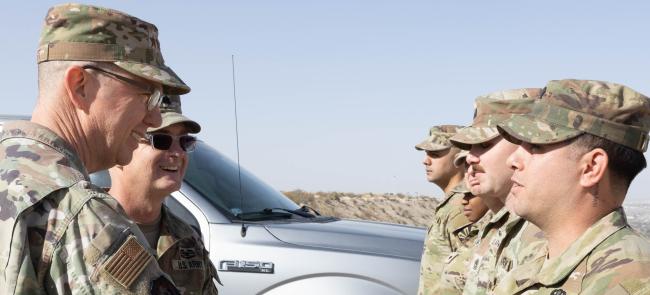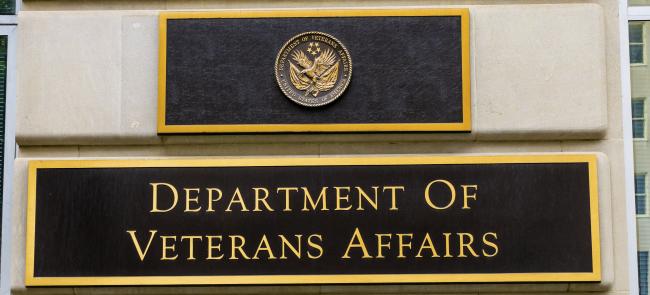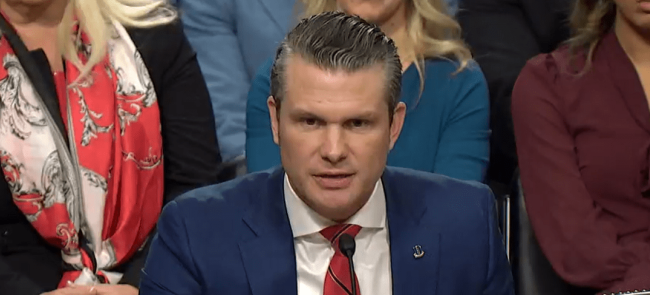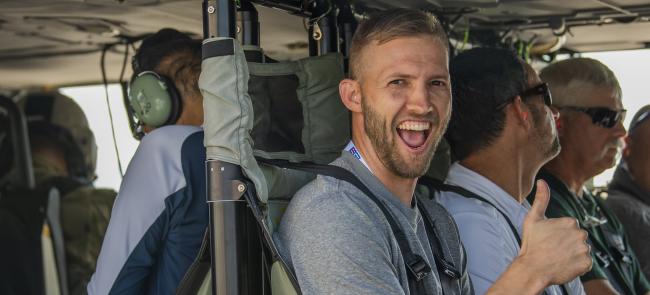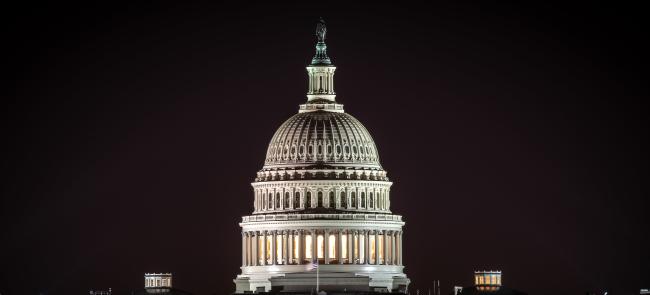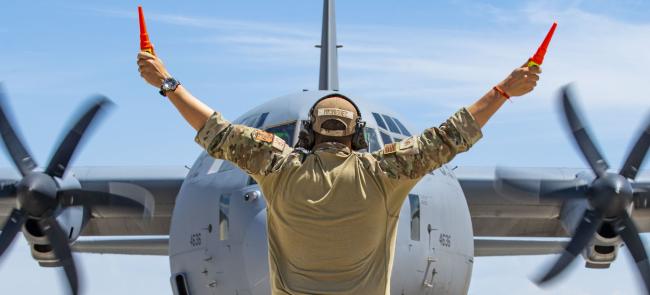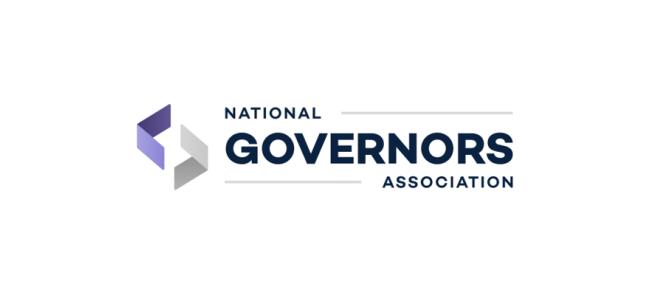
After months of behind-the-scenes negotiations, the leaders of the House and Senate Armed Services committees have released their conference committee fiscal 2025 National Defense Authorization Act.
The 1,800 page conference committee report was released Dec. 7 and has a $895.2 billion topline with $849.9 billion dedicated to the Defense Department.
This version of the nation's annual defense policy conference committee report includes one of the largest pay increases for junior enlisted personnel.
All service members — active, National Guard and Reserve — will be authorized a 4.5% pay raise next year, while those in the ranks of E-1 through E-4 can expect an additional 10% for a total of 14.5%. The cost of the increase is an estimated $1.6 billion in fiscal 2025.
Another highlight relates to fighter recapitalization — a NGAUS legislative priority.
The NDAA will require the secretary of the Air Force to consult with the director of the Air Guard to develop a plan to sustain and recapitalize the component's fighter fleet.
It requires a plan for recapitalization of all 25 Air Guard squadrons "at a similar rate as the fighter aircraft squadrons of the active components of the Armed Forces, with the same combination of legacy capability fighter aircraft and advanced capability fighter aircraft found in fighter aircraft squadrons of the active components of the Armed Forces."
The provision will impact only the 25 fighter aircraft squadrons of the Air Guard "in existence" when the NDAA is signed.
The conference committee report also approves the retirement of 36 F-15C Eagles and three F-16 Fighting Falcons from the Air Force, while preventing a similar fate for the service's F-22 Raptors and F-15E Strike Eagles through fiscal 2027, per Air & Space Forces Magazine.
The NDAA will additionally increase military leave accrual and accumulation for federal civilian employees from 15 to 20 days per year.
The NDAA establishes key Pentagon policies for fiscal year 2025; however, lawmakers must provide funding through the appropriations process. The conference committee report's text is the product of negotiations between a handful of House and Senate members and professional committee staffers.
Following recent history, the Senate failed to hold a floor vote on its version of the NDAA, instead entering a closed-door conference with the version approved by the Senate Armed Services Committee on June 13. The full House debated, then voted to pass, its version on June 14.
The House takes up the compromise measure Thursday and the Senate will consider it thereafter.
The Senate text includes a proposal allowing the transfer of the Air Guard's units with space missions to the Space Force without requiring the consent of the governors whose states are affected.
Retired Maj. Gen. Francis M. McGinn, the NGAUS president, first raised objections to the Air Force’s Legislative Proposal 480 in April.
"This proposal is also coming late in the process for consideration in the fiscal 2025 National Defense Authorization Act," he said. "It has the look and feel of legislation designed to be snuck into a large bill with little or no discussion."
The House-passed NDAA included an amendment maintaining the statutory authority of governors to oversee their Guard forces. The final conference committee report did not contain that language.
"NGAUS and our partners made this case clear to Congress over the past year," McGinn said in a Dec. 9 statement. "It is also an existential threat to state authority over the National Guard."
"Many lawmakers agreed, as evidenced by the numerous letters and legislative actions taken to reject the proposal," he continued. "We are grateful for their support."
The measure limits the number of Air Guardsmen who can be transferred to 578 personnel. Individual Guardsmen cannot be moved without their consent. The Air Guard must retrain and reassign anyone who decides against transferring.
An attempt by Rep. Joe Neguse, D-Colo., to amend the conference committee report to "ensure state and territorial governors retain oversight of the transfer of National Guard forces to the U.S. Space Force" was defeated in the Rules Committee Monday.
NGAUS will remain steadfast in opposing this effort.
The conference committee NDAA traditionally sails through the required vote of each chamber.
Congress has passed the NDAA — even when there are significant objections — every year for more than 60 consecutive years.
— By Jennifer Hickey


